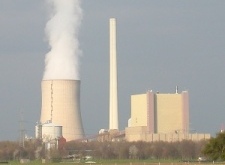 The nuclear industry has had a horrible few years, having to contend with the cooling of popular and political attitudes towards nuclear power that followed the Fukushima disaster in Japan in 2011.
The nuclear industry has had a horrible few years, having to contend with the cooling of popular and political attitudes towards nuclear power that followed the Fukushima disaster in Japan in 2011.
Since then, Germany decided to phase out nuclear power, Italy scrapped its planned nuclear programme and president François Hollande said he would reduce France’s dependence on nuclear power from 75 per cent to 50 per cent of electrical generation capacity by 2025.
And the UK has pushed for premature decommissioning of existing nuclear plant and has embarked on delay after delay for new nuclear build.
Natural Energy Resources Depleting
The dithering whilst time burns is brought into focus by a new report from the Global Sustainability Institute at Anglia Ruskin University.
The institute reports that the UK has:
- 5.2 years of oil remaining
- 4.5 years of coal remaining, and
- 3 years of gas remaining
France fares even worse with:
- Less than 12 months worth of oil, coal and gas remaining
Meanwhile Italy has:
- Less than 12 months worth of gas and coal remaining
- 12 months worth of gas remaining
Germany has:
- 12 months worth of oil and gas remaining, but
- 250 years of coal remaining
Unsurprising given the geo-political stance it takes, Russia holds a dominant position in comparison with:
- 500 years of coal remaining
- 100 years of gas remaining, and
- 50 years of oil remaining
Dr Aled Jones, director of the Institute, said:
“The EU is becoming ever more reliant on our resource-rich neighbours such as Russia and Norway, and this trend will only continue unless decisive action is taken.
“It is vital that those shaping Europe’s future political agenda understand our existing economic fragility.”
The institute warns that without Europe-wide investment in renewables then many of the core European nations will be entirely dependent on energy imports with all the concerns over security that brings.
Professor Victor Anderson of the institute said that what was needed was a:
“Europe-wide drive to expand renewable energy sources such as wave, wind, tidal, and solar power.
“Coal, oil and gas resources in Europe are running down and we need alternatives”
However taking one country as an example, Germany in particular have been suffering the effects of populist political policy as Angela Merkel looks to head off the growing threat of the green lobby.
German utilities, RWE and EON, owners of Npower and E.ON UK respectively claim they have been unfairly treated by Germany’s unilateral switch away from nuclear and onto renewable energy.
This has damaged their core business model, curtailed long-term investment returns, has led to a glut in supply, has eroded the wholesale energy price and severely compromised the companies’ profits.
Indeed such is the concern that both Eon and RWE have undertaken a constitutional challenge against Germany’s speedy and unprecedented exit from nuclear power.
In addition they are challenging the implementation in 2011 of an additional tax levy on nuclear fuel that has further compromised its competitiveness and on-going viability.
Alongside this is the significant sums of money required to conduct these premature closures of nuclear facilities safely, Eon has set aside €14.6bn whilst RWE has reserved €10bn for these activities.
Indeed the very viability of these companies is being called into question by some if this perfect storm continues. As a result of such a consequence, Germany could be stuck with partial decommissioned nuclear facilities and a public sector bill to clean up the mess.
Given the reported dwindling of fossil fuel supplies, the dangers of dependency on energy imports, the slow and intermittent rise in renewables, Germany’s is a case in point for a nation looking to solve a problem of its own making.
The only approach to energy that will see us fit for the short, medium and long-term future as independent energy nations and as a collective market is investment in a wider variety of technologies than is currently a la mode.
That means nuclear, shale gas, traditional fossil fuels as well as clean(er) fossil fuels and various shades of renewables are all required to contribute to a holistic, sustainable fuel mix that can support the needs of western nations without the geo-political risk.
Some things are too important to be the subject of political games, energy is one of those.
